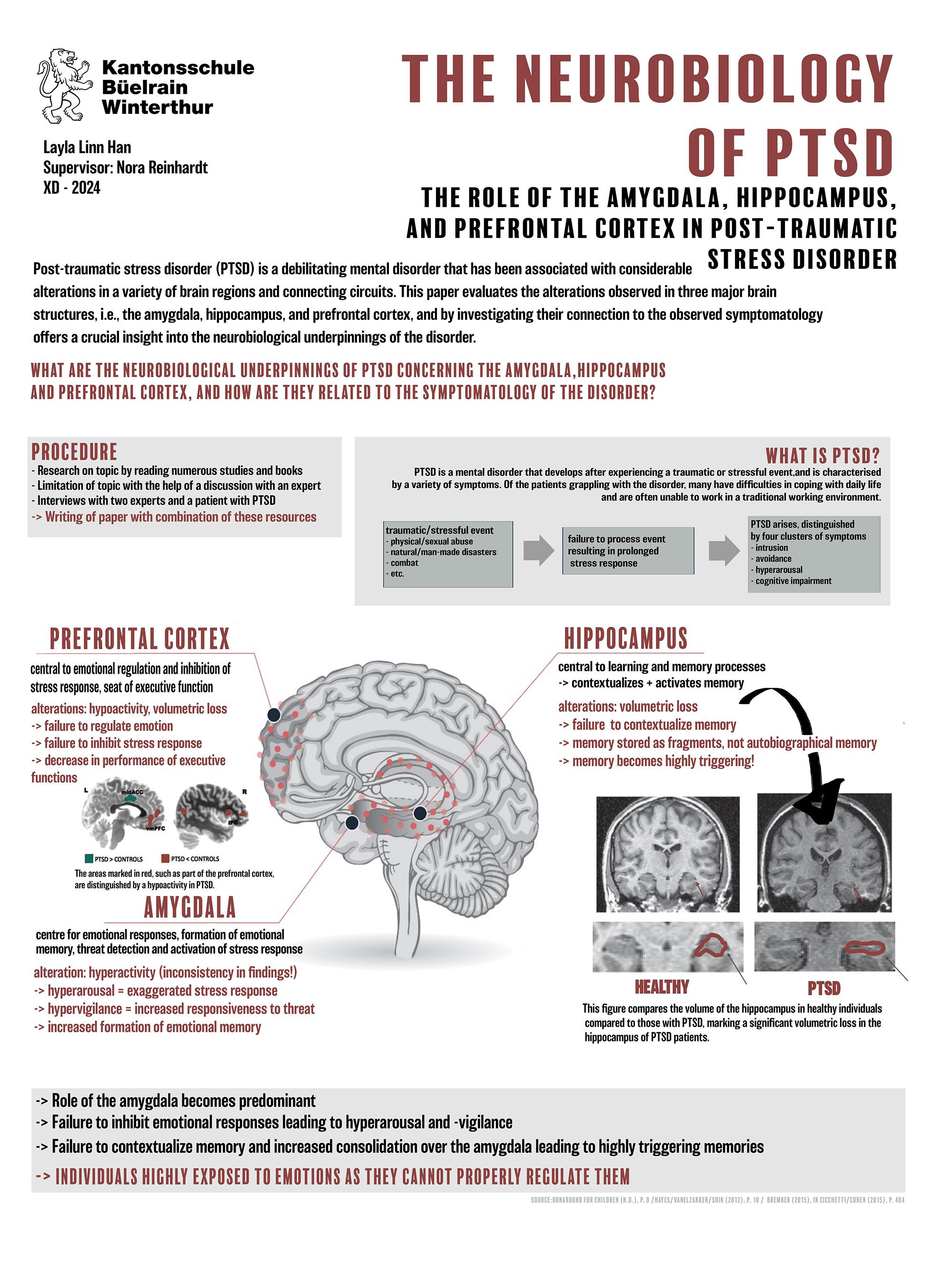Autor/-in:
Han Layla
The Neurobiology of PTSD
The Role of the Amygdala, Hippocampus, and Prefrontal Cortex in Post-Traumatic Stress Disorder
Nora Reinhardt
Christina Jähde-Schaub
Kantonsschule Büelrain
Fach: Biologie
Abstract
Post-traumatic stress disorder (PTSD) is a debilitating disorder that significantly impacts the lives of affected individuals. Research has proven that PTSD is related to a considerable impairment of neural circuits associated with the stress response and memory consolidation, which aligns with the symptomatology of the disorder.
By reviewing current research on the topic, this paper aims to investigate the abundant functional and structural alterations observed in the amygdala, hippocampus, and prefrontal cortex, as well as the impact on affected neural circuits concerned with processes central to the proper functioning of our bodies, namely the stress response and the consolidation of memory. By reviewing current research on the topic and discussing with experts on the field, this paper concludes the central alterations, and examines how they reflect on the symptomatology. A hyperactive amygdala, significant volumetric loss in the hippocampus, and both a hypoactivity and a volumetric loss in the prefrontal cortex are central features observable in PTSD, resulting in a dysfunction of processes related to stress and memory. The exploration of the neurobiology of the disorder is crucial not only to gain a deeper understanding of the neurobiological underpinnings, but also to the development of both preventive and therapeutic interventions.
